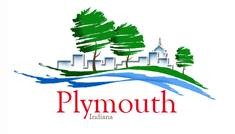 The City of Plymouth is finalizing some of the arrangements for its Community Crossings grant application. On Monday, the Plymouth Board of Works approved a list of 13 street projects to be submitted to the state for consideration for 50-50 matching funds.
The City of Plymouth is finalizing some of the arrangements for its Community Crossings grant application. On Monday, the Plymouth Board of Works approved a list of 13 street projects to be submitted to the state for consideration for 50-50 matching funds.
The board also approved the city’s updated pavement asset management plan. City Engineer Rick Gaul says the city has already been rating its roads as the program requires for several years, but there are some new requirements. “One of the items that is new on the process is a federal Highway Network Health program, which is where you start calculating your lane-miles that you’re actually doing and your health and your costs, and you kind of try and balance everything out,” he says. “Basically, we have a whole section on this pavement management that deals with that, and it’s something that you try and get balanced every year if you can.” Rather than simply fixing the worst roads first, the idea is to maintain or increase the amount of useful life for each lane-mile of the city’s roads.
Meanwhile, to pay for the city’s share of the projects, the Plymouth Common Council voted during its meeting to appropriate a million dollars for the program. That means if the city receives the maximum amount of money available in the Community Crossings program, Plymouth would have the money available locally to match it. However, not all of that money may be used, if the city does not receive the maximum amount of funding from the state.
During a brief public hearing on the additional appropriation, council member Mike Delp expressed his support for the measure. “I’ll just say thanks that we’ve moved the money around, found a way to do it,” he said. “Certainly, improvement on our streets is a good priority right now, so I appreciate everybody’s effort on it.”
As part of those funding arrangements, the city appropriated its entire $555,000 Local Option Income Tax distribution it recently received from the state. The rest of the million dollars came from Plymouth’s Rainy Day Fund.










